A Virtual Private Network (VPN) is a network that uses the internet to provide remote access to a centralized organizational network. VPN is very useful these days as it allows one to access data, files, printers, and other devices remotely. Users need to be authenticated first, to be able to connect a VPN. It is not a cloud service, but a file-sharing service that requires the internet and a server to be hosted.
Read: How to set up VPN in Windows.
Configure VPN connection in Windows 11/10
This tutorial will show you how to configure your Windows 11/10/8/7 computer to accept VPN connections. The steps are as follows:
- Open Control Panel
- Click Network and Sharing Center
- Click Change adapter settings
- Select New Incoming Connection
- Follow the wizard to its logical conclusion.
Let us see this in detail with screenshots. You may click on the screenshots to see the larger versions.
Set up a new connection
Open Control Panel > Network and Sharing Center.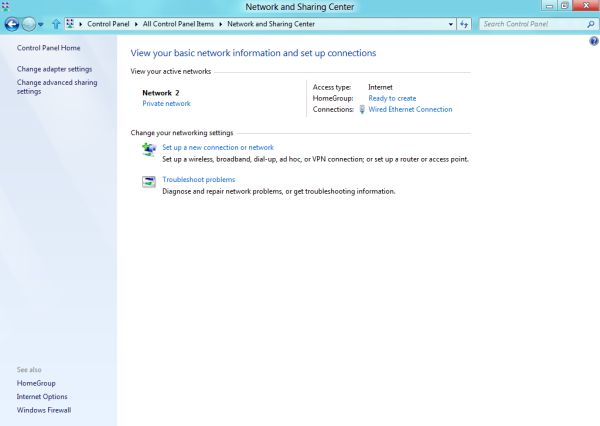
Click on “Change adapter settings”.

Press Alt + F and click on “New Incoming Connection”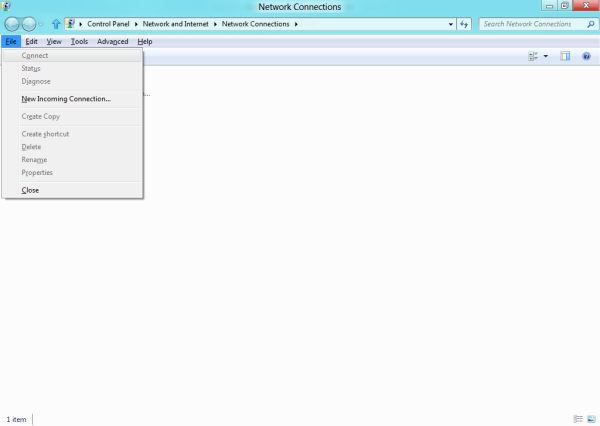
Now a wizard will open. In the first step, mark those users who do you want to allow access to use your connection.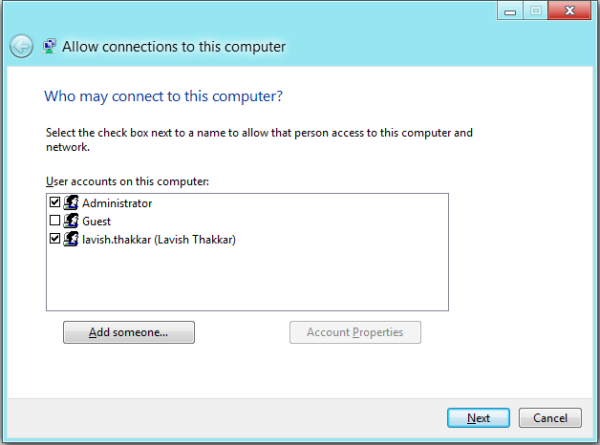
Put a mark on “Through the internet” and click Next.
Now select the protocols you want to connect, and double click on “Internet Protocol Version 4 (TCP/IPv4).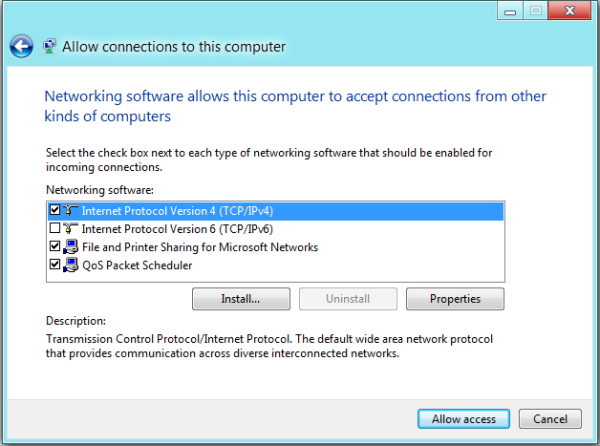
In this screen which appears, ensure that the Properties set are the same as shown in the image below. Click OK.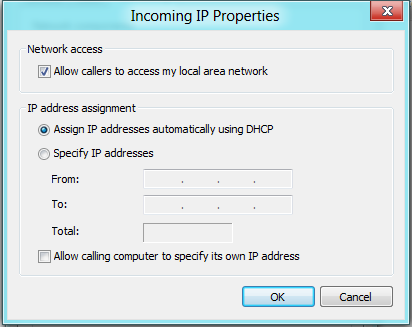
Now you will see the last step of the Wizard. Click on Close to finish it – but remember to note down the computer’s name as it will be used when you connect.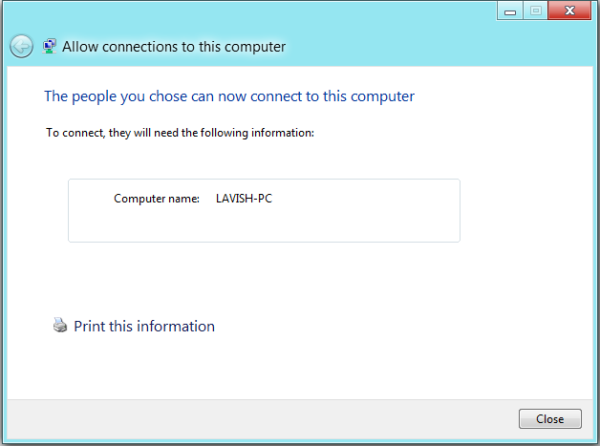
That’s all! You will have set up your own VPN connection. Now, let’s see how to configure the Windows Firewall.
Configure Firewall to accept connections
Go to Control Panel > Windows Firewall.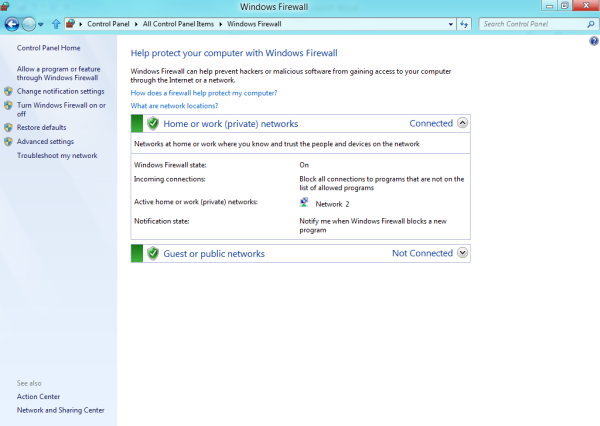
Click on “Advanced Settings” in the left menu.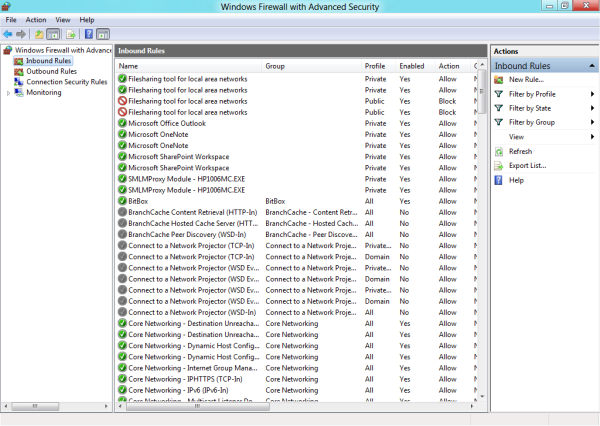
Now click on “Inbound Rules”. Next click on the “Actions” menu and then click on “New Rule…”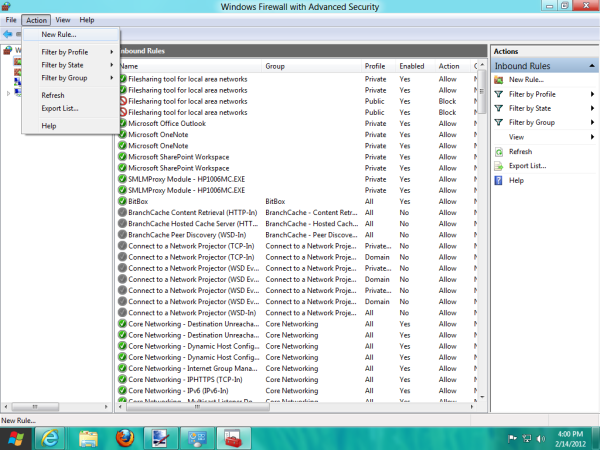
A Wizard will open. In the first step, select the “Port” option and click on Next.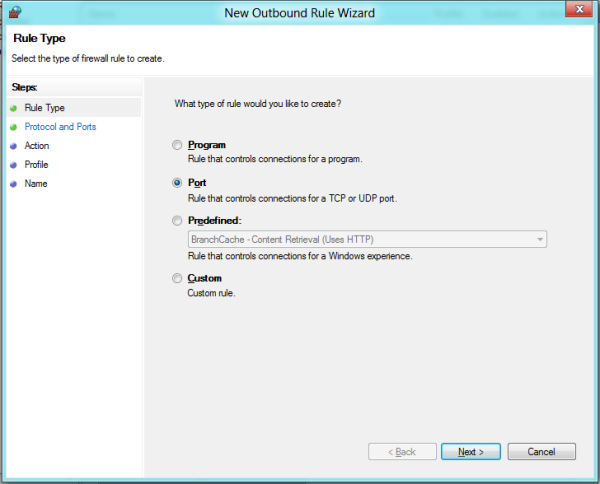
Select “TCP”. In the “Specific remote ports” space, enter “1723” and click on Next.
Now select “Allow the connection” and click Next, again.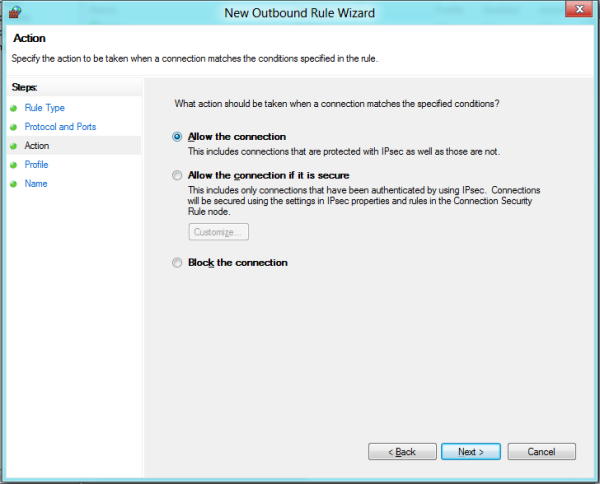
In the Name and Description fields, enter anything you want and click “Finish”.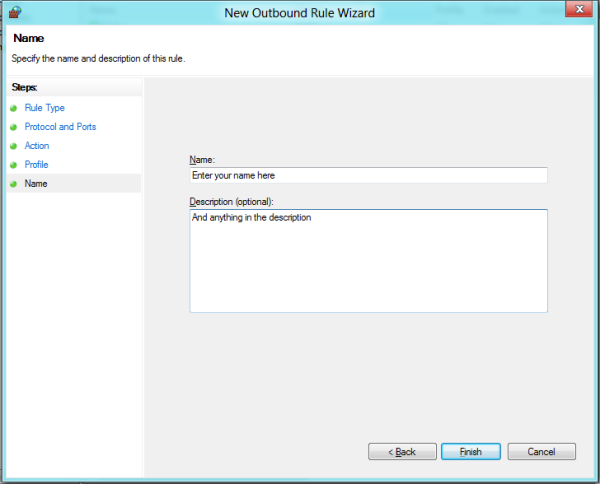
Now you will have also configured your Windows Firewall to accept connections. But you will also need to configure the Router. I can’t explain all the Router settings, as they differ from Router to Router, but I can help you out by just giving you some advice – and that is to Enable PPTP and Generic Route Encapsulation (GRE) on the Router, or enable PPTP, or create a port forward to port 1723. If your Router has an additional setting for PPTP or VPN, make sure it’s enabled. After doing this, your computer will be ready to receive the VPN connection. 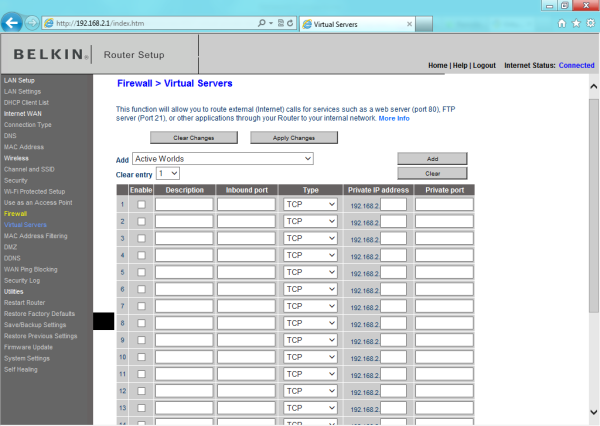
I hope you have liked the tutorial and found it useful.
TIP: This post covers some common VPN error codes troubleshooting & solutions.
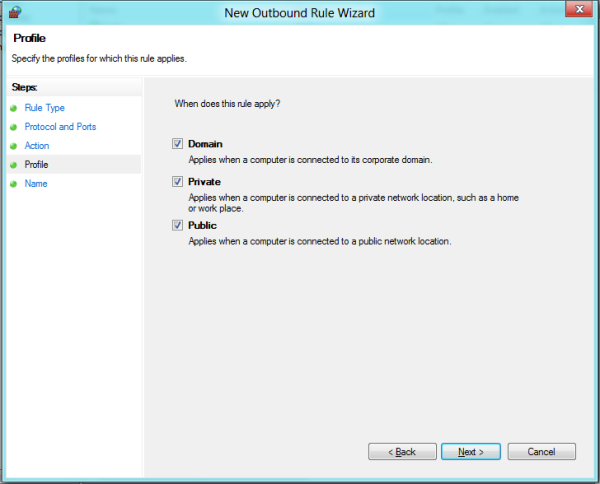
Good article. Shared on Google+.
Thanks a lot Dustin!
You say to create a new Inbound rule, but your screenshots show the Outbound Rule Wizard!!
Which is it that I need to create?
Hi RS, it is a ‘Inbound Rule’!
Lavish, this is really one of the worst writing samples I’ve come across on the internet. You should preface your articles with something like, “Be ready to be confused by my English.” I’ve set up VPN’s numerous times, and you managed to confuse me.
This was my first time setting up a VPN and it seemed clear and obvious to me.
I can connect but I cannot find the shared folder the I setup.
boss u r super..
Norman, the most easily forgotten whiner attacks Lavish Thakkar; The man who will always be remembered for helping people setup their VPN.
So, how do I set up username and password to restrict connecting devices?
same error
My WIndows 10 VPN works perfectly without any “custom rules for port 1723”.
Why?